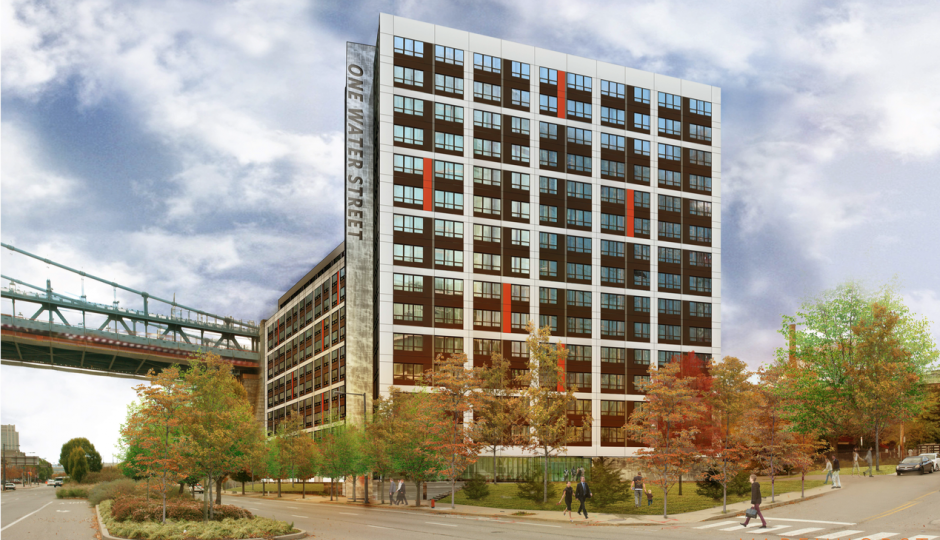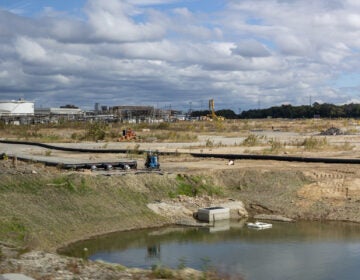June 3: Philly sued over lead testing | One Water Street wants backsies on affordable housing | Free land

The law firm Hagens Berman filed a class action lawsuit against the city of Philadelphia, over water testing protocols that they argue “temporarily hide” lead contamination levels, The Guardian reports. They say the city also doesn’t test in enough high-risk areas, skewing the larger picture. Philadelphia is one of several U.S. cities that employs water testing “cheats” that reduce lead exposure like pre-flushing pipes, removing aerators, and running water more slowly during tests than the typical home water user probably would. A group of local organizations including PennEnvironment and Drexel University launched a Philly Unleaded Project today to crowd-source a more representative water test.
One Water Street, the first luxury apartment building built under the Master Plan for the Central Delaware, received a density bonus for an additional five stories in exchange for including 25 below-market units, but now that those floors have been built, PMC Property Group wants to renege on the deal and fund some public art instead, reports Inga Saffron. They also cashed in a 24-foot height bonus for public open space that Saffron can’t seem to find on the property.
The Land Bank released an RFP for ‘workforce housing’ for eight properties in Francisville, proposing to give the land away for free or for a nominal fee provided developers kept selling prices under $230,000, Jared Brey reports.
An interesting trend to watch: a San Francisco housing developer will pay tenants not to drive, writes Adele Peters. Rather than provide on-site parking, which can be very expensive to build for large multi-unit buildings and add hundreds of dollars a month to rent, Maximus Real Estate Partners will give tenants a $100 a month incentive to use Uber or Clipper, the local transit card.
AirBnB is responding to the outcry that its platform enables racial discrimination by launching a “comprehensive review” of their practices, Emily Badger reports. “A widely cited Harvard Business School study last year found “widespread discrimination”by Airbnb hosts who were less likely to accept bookings from guests whose names sounded distinctly black.”
WHYY is your source for fact-based, in-depth journalism and information. As a nonprofit organization, we rely on financial support from readers like you. Please give today.






